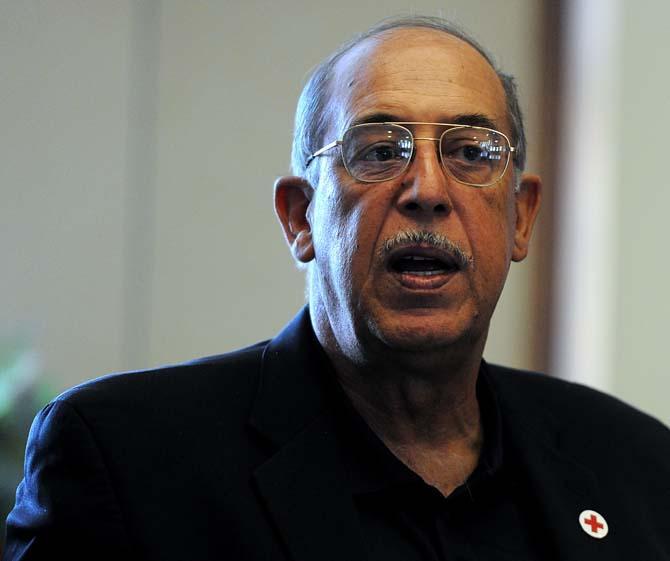Retired Army Lt. Gen. Russel Honoré spoke to a group of about 20 students on the importance of being prepared during crises Tuesday afternoon in them in the Manship School of Mass Communication’s Holliday Forum.
Christened a “John Wayne dude” by former New Orleans Mayor Ray Nagin, Honoré, who’s also been known as the “Ragin’ Cajun,” became somewhat of a media sensation after he was made commander of Joint Task Force Katrina. As commander, he was responsible for military relief throughout the Gulf Coast after Hurricane Katrina.
His experiences led him to write two books, one on how to survive in a crisis and another on how leaders should face what he calls the “new normal.”
Both prescribe ways for military leaders and politicians to address the media during crises.
“My approach to the media [during Katrina] was to give them the information based on what I think the purpose of the media is, which is to give people the facts,” Honoré said.
He started, saying officials should not address the media about how they feel about things and only relay facts, which he said often didn’t happen during Katrina.
Honoré cited the example of a congressman leaking to the media that survivors in New Orleans would have to send an email to receive help, a leak he said either wasn’t true at all or was a complete misinterpretation.
When questioned about the leak in a 2005 news conference, Honoré famously yelled at the questioning reporter, “That’s B.S. It’s B.S. I can tell you that is B.S.!”
“If you don’t deal with the engaged press as a leader, other people will,” Honoré said, hinting politicians used Katrina to elevate their popularity.
From Katrina, Honoré moved into talking about preparedness in the “new normal.”
“Our concept of normal is post 9/11,” he said. “It changed from innocent little old ladies getting on airplanes with a bottle of water to them getting strip searched.”
It’s a change that happens every so often — one occurred when the nation formed, another after the atom bomb was used in World War II, he said.
Despite these shifts in preparedness, we’re still not fully there, he said.
“People think they can take the risk and not be prepared for potential disasters,” Honoré said.
He gave the example of failing generators in New York hospitals in the aftermath of Hurricane Sandy.
“That really made me mad,” he said, adding that once you lose electricity during a disaster you’re “set back 80 years.”
And finally, Honoré left his audience with a few words of advice on reporting during crisis.
“Never ask a question you don’t have the answer to, because then people can tell you anything.”





